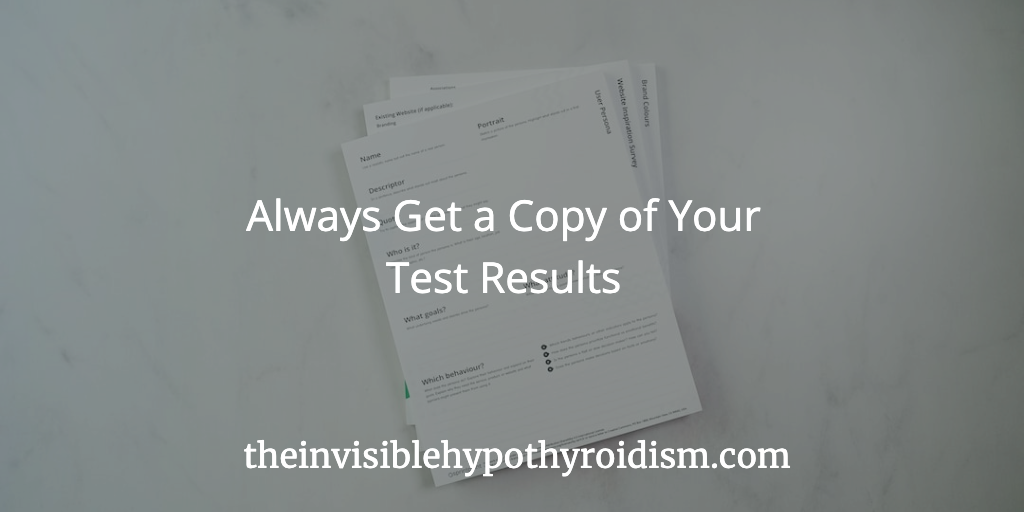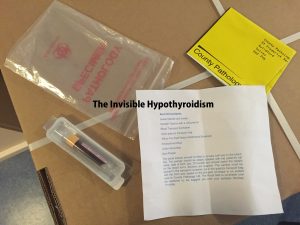Originally published on 28th May 2016 Last updated on 8th December 2023
Whenever you have any tests done by the doctor, endocrinologist or another medical practitioner, always always always get a copy of the results. Either printed out, as a PDF on your phone, or written down on paper (full test names, results and reference ranges included). Many practises even have the ability to give you access to them via an app now (the NHS app in the UK).
Keeping a record of your medical history at home, so you can refer back to them whenever you need and have the full picture of your thyroid health, is incredibly helpful. And is one of my number one tips for advocating for yourself!
This also goes for not just thyroid tests, but vitamin level tests, examinations and any others. They are good to keep a record of when exploring or maintaining your overall health.
Many thyroid patients benefit from being more involved in their thyroid care and treatment.
If a problem arises, where you feel intimidated to ask for copies because of unhelpful receptionists or doctors who imply that you can’t have copies of your test results, do know that:
The NHS Constitution contains a right for patients to access their health records, which is covered by the Data Protection Act 1998 and General Data Protection Act (GDPR).
This says:
“You have the right of access to your own health records and to have any factual inaccuracies corrected” [1]
I personally ask the receptionist to print my test results out for me as I arrive for a doctors appointment. I tell her that I like to have them in front of me when the doctor is explaining my results.
Although you may be asked why you want to access your health records, there is no obligation for you to tell them.
Most practises do not charge for printing your records such as test results, but some surgeries do charge to print them off per page, although this is usually up to a limit of £10.
They may write them down for you to save on printing costs, which is fine, but do ensure that they write everything as it appears on screen – the name of each test, the date it was conducted, the ranges, results and any commentary. For this reason, printouts or electronic versions on your phone are usually better.
You do not need to tell them why you want them. You can just say that you like to keep a record at home.
Most people only need ask a receptionist at their GP surgery for it all to be printed out for them, but some receptionists may insist they get permission from your GP before they do it. This should be pretty straight forward, since they cannot say no unless they feel that giving it to you may cause serious harm to your physical or mental health or that of another person, or if it is manifestly unfounded or excessive.
Where access has been refused on this basis, you must be given an explanation as to why and you must also be informed that you have the right to complain to the Information Commissioner’s Office (ICO). But most patients don’t have much trouble obtaining copies of their medical records/test results.
Although very uncommon, if you are refused access to your medical records by your doctor, then you may need to file what is called a “subject access request” (SAR). A subject access request is a letter or email to the relevant person which will depend on which health records you want to see.
You can click on the hyperlinks in the above post to learn more and see references to information given.
Do you keep copies of your test results at home?
References:





